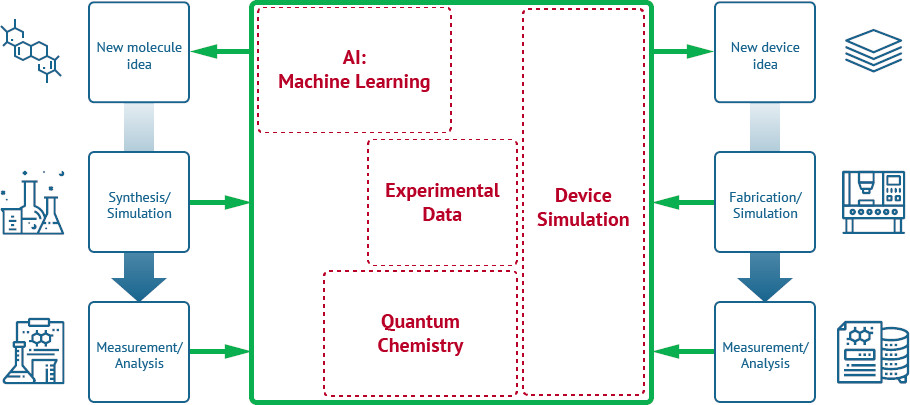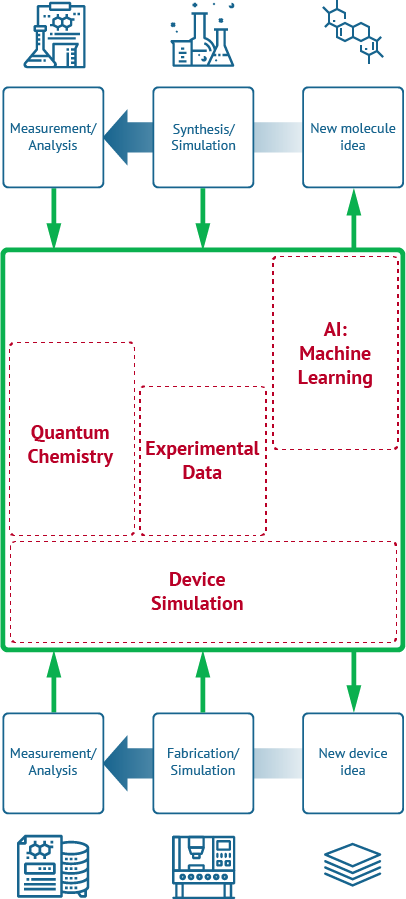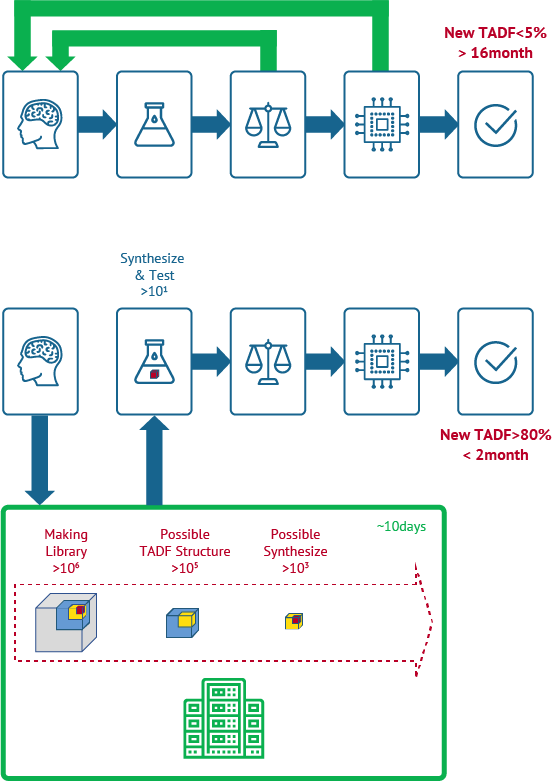In 2016, Kyulux licensed on an exclusive basis for OLED an AI-enhanced materials screening platform from Harvard University. This “AI platform” can rapidly screen millions of molecules and then find the best candidates for OLED applications, particularly for emissive materials with TADF (Thermally Activated Delayed Fluorescence) characteristics. To utilize and improve this AI platform, Kyulux established a subsidiary in Boston: Kyulux North America, Inc. (KNA)
Since its establishment, KNA has significantly improved the AI platform and extended its features in many ways. The improved new platform has been named Kyumatic™; Kyumatic™ is a fully integrated materials informatics system that consists of:
1. Cloud-based quantum chemical calculation system
2. AI-based prediction system
3. Device simulation system
4. Data management system including experimental measurements and intellectual properties.
All of the technical information in Kyulux flows through and can be accessed from Kyumatic™.
Kyumatic enables Kyulux to speed up its development process. An idea by a researcher in Japan turned into a series of candidate molecules through the high-throughput virtual screening process of Kyumatic™, in only several days with almost zero-human efforts. Only a few molecules selected the candidates synthesized and evaluated. These molecules are then applied to a real OLED device and tested thoroughly.
The entire cycle from an idea to a real device takes only in a few months, which is incomparably faster than the conventional materials development cycle. In addition, all the experimental data will be fed back to Kyumatic™ and become part of the dataset that helps improve the prediction model, used by the screening process.







